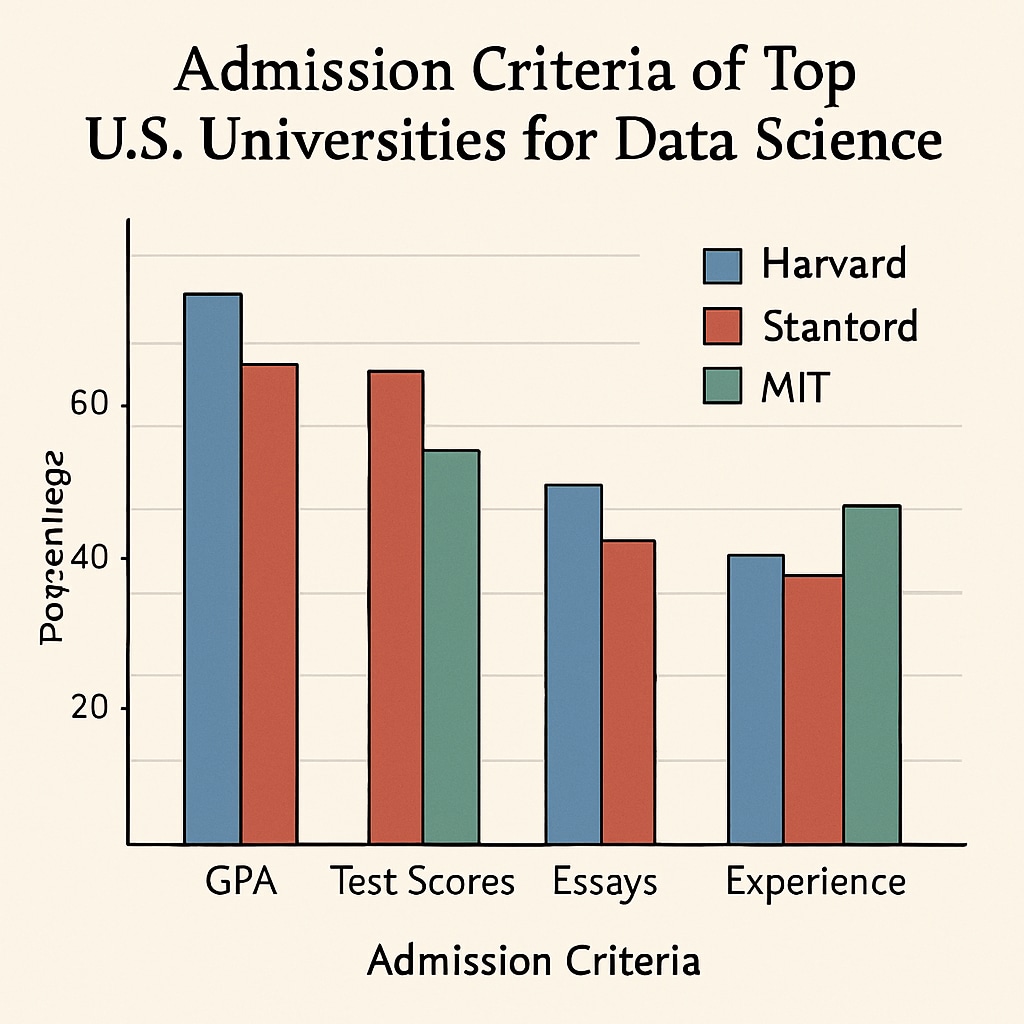For international students aspiring to study data science in the United States, understanding the admission requirements can be both exciting and overwhelming. From academic qualifications to application strategies, this guide provides a thorough overview of the process, helping prospective students navigate the competitive landscape of U.S. university admissions.
Understanding Academic Requirements for Data Science Programs
Data science programs in the U.S. typically require applicants to have a strong foundation in mathematics, statistics, and programming. International students should ensure their previous education includes coursework in subjects such as calculus, linear algebra, and coding languages like Python or R.
- Bachelor’s Degree: Most universities require applicants to hold a bachelor’s degree in a related field, such as computer science, engineering, or mathematics.
- GPA: A competitive GPA, usually above 3.0 on a 4.0 scale, is often necessary.
- Standardized Tests: Many programs mandate GRE (Graduate Record Examination) scores, though some have waived this requirement in recent years.
In addition, universities may require proof of English language proficiency, such as TOEFL or IELTS scores, particularly for non-native English speakers.

Key Application Components and Strategies
Crafting a strong application involves more than meeting academic prerequisites. Here are the essential components and strategies to stand out:
- Personal Statement: Highlight your passion for data science, relevant experiences, and career goals. Tailor your essay to align with each program’s unique offerings.
- Letters of Recommendation: Secure letters from professors or employers who can speak to your technical skills and potential for success in a rigorous academic environment.
- Portfolio: Showcase projects or research that demonstrate your practical experience in data analysis, machine learning, or related fields.
It’s also advisable to research each university’s program thoroughly. For example, explore faculty expertise, research opportunities, and available resources to ensure the program aligns with your interests.

Financial Planning and Scholarship Opportunities
Studying in the U.S. can be expensive, but various funding options are available for international students:
- University Scholarships: Many institutions offer merit-based scholarships for international students.
- Assistantships: Research or teaching assistantships often provide tuition waivers and stipends.
- External Funding: Organizations such as Fulbright and DAAD offer scholarships for international students pursuing graduate studies.
Be sure to factor in the cost of living, health insurance, and other expenses when planning your budget.
Post-Admission Steps and Career Opportunities
Once admitted, it’s crucial to prepare for the transition to studying in the U.S. This includes applying for a student visa, arranging housing, and familiarizing yourself with the academic culture. After graduation, international students can explore opportunities through Optional Practical Training (OPT) or the H-1B visa program, which allow them to gain work experience in the U.S.
Data science graduates are in high demand across industries such as finance, healthcare, and technology. Building a strong professional network during your studies can open doors to exciting career paths.
In conclusion, applying to a data science program in the U.S. as an international student requires careful planning and preparation. By understanding the academic requirements, crafting a compelling application, and exploring financial options, you can take the first step toward a rewarding career in this dynamic field.
Readability guidance: Use concise paragraphs and lists to summarize key points. Distribute transition words evenly throughout the text to maintain a smooth flow.


